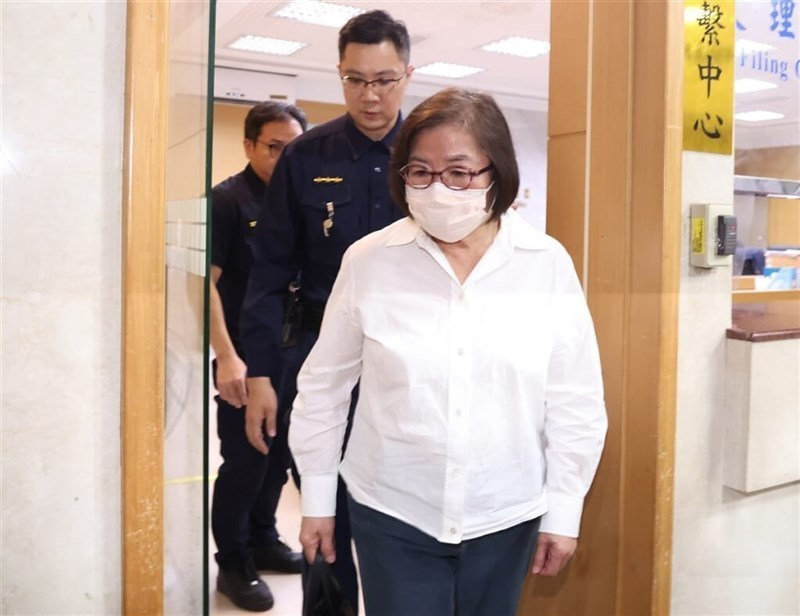In a significant blow to Taiwan’s democratic image, five individuals affiliated with the opposition Kuomintang (KMT) party have been indicted for allegedly forging over 5,200 signatures in an attempt to recall two Democratic Progressive Party (DPP) lawmakers. The incident not only reveals the intense political polarization in Taiwan but also highlights a troubling misuse of Taiwan’s democratic recall mechanism.
🔍 Background: What Happened?
On June 2, 2025, the Taipei District Prosecutors Office charged five KMT-linked individuals, including Huang Lu Chin-ru, chief of the party’s Taipei branch, and Chu Wen-ching, the branch’s secretary-general, along with secretary Yao Fu-wen, for orchestrating large-scale forgery in connection with recall vote efforts against DPP legislators Wu Pei-yi and Wu Szu-yao.
Prosecutors allege that:
- 5,211 forged signatures were submitted:
- 2,537 for the recall of Wu Pei-yi
- 2,674 for the recall of Wu Szu-yao
- Forgery rates were shockingly high:
- 96% for Wu Pei-yi’s case
- 94% for Wu Szu-yao’s case
These fabricated forms were presented as part of Taiwan’s two-stage recall petition process, which requires verified citizen support to initiate a recall vote.
⚖️ Legal and Political Ramifications
The Public Officials Election and Recall Act mandates that petitions must be signed by a certain percentage of eligible voters. These signatures are verified by the Central Election Commission (CEC). Submitting forged names not only undermines the integrity of the process but constitutes a criminal offense, potentially carrying heavy penalties for those involved.
The Taipei District Prosecutors Office has requested severe punishment, stating the accused showed “no remorse” and actively threatened the core of Taiwan’s democratic institutions.
Three defendants remain in detention and will be transferred to the Taipei District Court. Meanwhile, 15 other KMT staffers and volunteers have admitted guilt and were granted deferred prosecution. High-profile figures like Taipei City Councilor Chang Szu-kang and recall campaigners Lee Hsiao-liang and Chang Ko-chin were not indicted.
🧩 Analysis: Why This Matters
This scandal emerges during a period of heightened political tension in Taiwan, where both the DPP and KMT are engaged in aggressive recall vote campaigns across the country.
This case, though isolated in Taipei, forms part of a larger trend. Reports of signature forgeries and procedural irregularities have surfaced in New Taipei, Taichung, Kaohsiung, and Keelung, pointing to a systemic misuse of the recall process.
The scandal raises pressing questions:
- Is Taiwan’s recall system too easy to exploit?
- Should the threshold for recall petitions be raised to avoid frivolous or politically motivated attempts?
- What reforms can ensure such mechanisms are not weaponized?
🔒 Broader Implications
- Democratic Erosion Risk: Abuse of recall procedures for partisan purposes undermines voter confidence in democratic systems.
- Policy Reform Pressure: The incident may fuel public and legislative demand for reforming electoral laws to prevent further misuse.
- Party Image Crisis: For the KMT, the indictments represent a serious reputational blow, potentially affecting their standing among centrist and swing voters.
📘 FAQs
What law was violated in this incident?
The accused violated provisions of the Public Officials Election and Recall Act related to falsifying documents and undermining election integrity.
How many signatures were forged?
A total of 5,211 signatures were forged — 2,537 for Wu Pei-yi and 2,674 for Wu Szu-yao.
What will happen to the accused?
Five individuals were indicted and three remain detained. They face court trials and potentially heavy penalties. Others received deferred prosecution after admitting guilt.
What changes might occur after this scandal?
Possible reforms include raising the threshold for recall votes, stricter ID verification for petitions, and increasing penalties for misuse.
What does this say about Taiwan’s democracy?
Taiwan remains a vibrant democracy, but this case underscores the need for safeguards against political abuse of democratic mechanisms.


